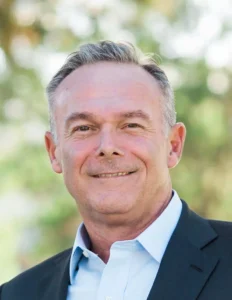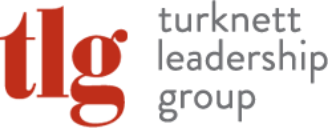

What does Synergis do and how would you describe your role?
Well, essentially what we do is we’re in the staffing business. What that means is that we provide clients with experienced talent to staff various projects, vacancies, different initiatives, or sometimes to fill a skill gap within a company. We tend to work with mostly larger organizations, so we’re very fortunate to work with organizations like the Southern Company, Home Depot, Google, Apple, LinkedIn, just some really prominent organizations. Then we also provide what we would call project services, I guess kind of an evolution from staffing where we take on more responsibility than simply providing individuals. We might provide teams of people, we may assume responsibility for the deliverables on a particular timetable. A little bit different.
And I probably should have mentioned that the three segments that we focus on are information technology, marketing, and creative services, and then also learning and development. I know those don’t sound related in any way, shape, or form, but they really do work together in concert, and it’s been kind of an exciting time for us.
What led you to seek out leadership coaching, specifically with TLG?
Well, it was really serendipitous that Bob and Lynn and I met, we met at a fundraiser. Our industry has experienced high turnover, historically. It’s just one of those businesses or roles where traditionally you bring in somebody with little to no experience, maybe right out of school and you train them. It’s always been considered to be kind of a flip of the coin as to whether or not things will work out with that individual. So turnover has always been high in the industry, and it was really no different for me in my career. But I think in speaking with others outside of the industry, they didn’t seem to understand why that would necessarily have to be true. And so we took a look at Turknett, took a look at their book that I think had just come out at the time and gave it a try. The results have been phenomenal.
Can you describe your experience with the coaching process?
Yeah, as I mentioned, I think at first it was really kind of a “give it a try” thing, just see what happens. It’s an investment, it’s an investment in time, and it’s an investment in resources. I think Bob in particular has been really great to work with, no doubt about it. He’s always been very flexible. We have a good rapport, and I think we’ve formed a relationship and a friendship over the years. But yeah, he’s always been very supportive, made himself available, and seems to understand the demands on the life of a CEO.
What did you originally want to get out of the coaching experience? How did that evolve over time?
Well, initially it was to see what we could do to stem this turnover experience that we were faced with. And I think that has certainly been accomplished. I think there’s so much more to it than that. Certainly really started with understanding the Turknett Leadership Character Model. It led to developing a good culture within the organization, and then developing certain techniques and tactics to deliver messages appropriately to the people that we really depend on and work with – our employees and our customers.
How has coaching helped you approach challenges differently?
Well, I think certainly with more empathy and maybe what would be called emotional intelligence these days, maybe certainly being more present, being more understanding, listening a lot more. It’s funny because I started my career in sales and I always prided myself in being a good listener. But I think when I was working with employees, I treated people a little differently than I would a customer. And I had my assumptions going into a meeting or a discussion with our employees and when I really should have been listening with a little more care and empathy.
What changes have you noticed in your leadership or work style since working with Bob Turknett?
Oh my gosh. It’s like night and day. I had a reputation when I first got into leadership for being a hard driver. And I still am, and I still have high expectations. I’m definitely a type A personality, but I have learned to temper that. And I’ve also learned that high performance and having a people focus are not mutually exclusive. In fact, they can really compliment each other when you hire the right people and apply the correct methods.
What advice would you give to someone considering leadership coaching?
I think you have to be prepared that first of all, it is a marathon. It’s not a sprint, and it takes a lot of concerted effort and commitment to change yourself, because that’s really what you have to do first, is you have to be willing and embrace that you are the problem. And so making changes is difficult for anybody, there’s no doubt about it. But oftentimes, I think we as executives don’t really look introspectively as often as we should. We look to the individuals or the organization and we say, “Hey, that’s the problem.” Maybe that’s just normal human nature. We always sometimes complain about our employees having these water cooler talks, or not taking personal accountability and blaming others and all of that. And it’s just really the exact opposite. It really starts with us as leaders becoming a little more enlightened maybe than we were walking into it.
What do you see as the next steps in your leadership journey after this experience?
Sure. Well, I’ll tell you the next steps in that leadership journey. That’s a great question. The thing that really gets me excited today is seeing the growth and development of others within our organization, not just their achievement of objectives and acquisition of their houses and their toys and all that. That’s not necessarily how I define success anymore, really. It’s helping others to become everything that they possibly can be. I know it sounds a little bit like the army recruiting commercial, but that’s exciting to me. And perhaps down the road, just becoming a mentor of some kind. Really. That’s the kind of thing that gets me excited every day. It gets me up in the morning.
Any final words for our readers?
I am extremely grateful for the opportunity to have worked with the Turknett Leadership Group. It really was fortuitous to have met Bob. My company at that time was a very small company, and probably if we had not been at that fundraising event together, I would not have had the opportunity or the exposure to such a prominent organization in the field and have had access to their services. So I realize that I’m very fortunate and appreciate what the organization has done for me and my organization as well, and the people that I’ve had the opportunity to work with.

